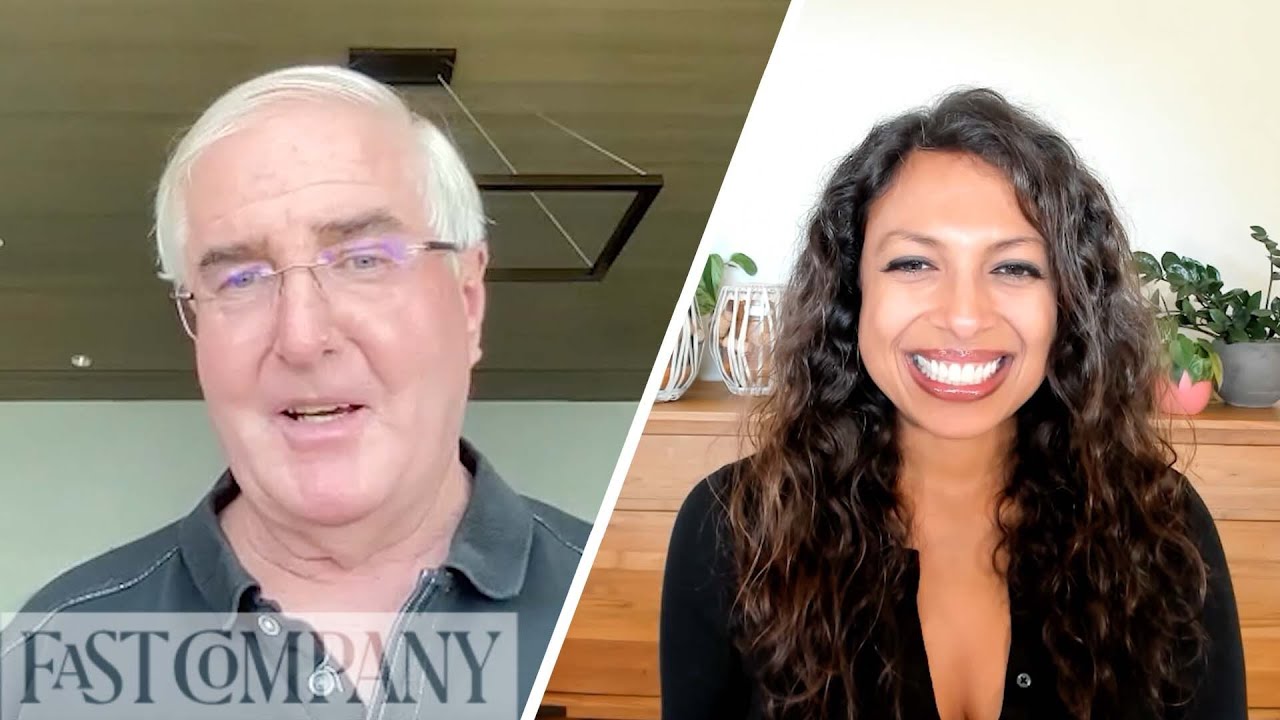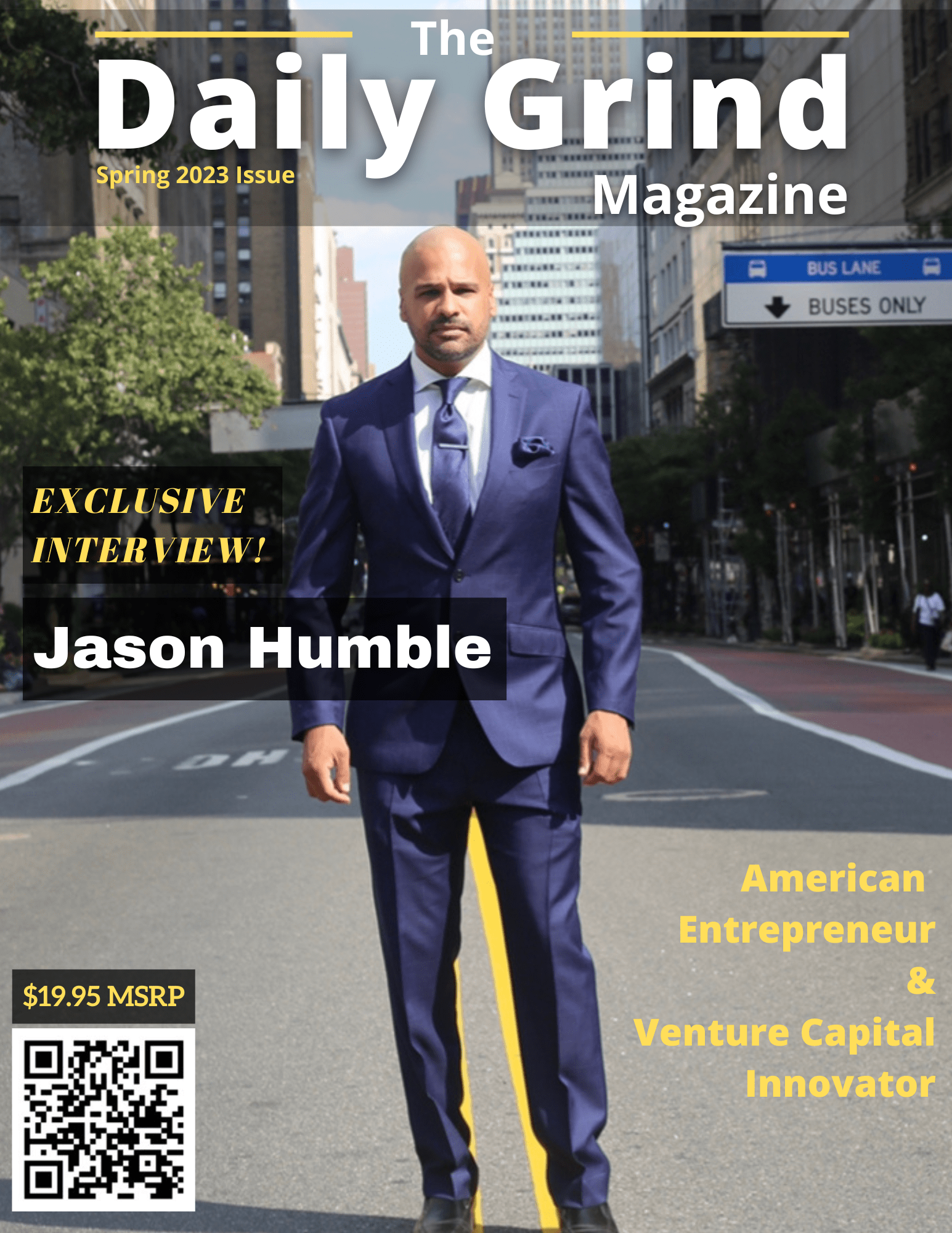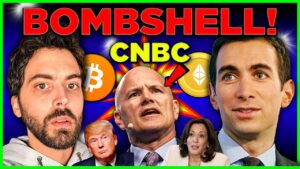– And the smartest decision I've ever made in my investing career, That included some luck, is I said, "Let's invest in this
thing called the internet." – I'm Prerna Gupta, a tech founder, And in this series, I'll explore how
exceptional people succeed By following their hero's journey. Hi, Ron, welcome to Hero's Journey, And thanks for joining. – [Ron] Good morning. – So you're known as the
Godfather of Silicon Valley, And you've been a hero
to hundreds of founders In your career, including me. How did you get into Angel investing, And what was your first unicorn? – So, I got into Angel
investing a long, long time ago, 30 years ago, But before that I had started,
and run three companies, One of which went public,
that was Altos Computer. And one of the board
members of Altos Computer Was Don Valentine, the founder of Sequoia. And ultimately, we sold Altos Computer After many years after it had gone public, But we sold it to the
Acer Group in Taiwan, And so I had a chance
to have a fresh start, And I had become friends
with Don Valentine Who was then running Sequoia Capital With just one other partner. Sequoia Capital was a tiny,
tiny firm at the time. And Don said, "What do you wanna do next?" And I said, "Well, at Altos, "I was managing a couple
of thousand people, "and I found out I don't
like managing people,
"even though everyone at Altos
said I was a good manager." And he said, "Wow, if you
don't like managing people, "but you like being around startups, "why don't you consider
being an Angel investor, "where you just give founders advice, "but you're not managing the founder?" And I said, "My God, that
sounds like a great idea." He said, "Fine, come sit
on some boards with me, "and watch how I mentor founders, "and if you like that, you can start, "I'll give you deal flow, "and you can start Angel
investing a little bit of money, "a little bit of your own money, "and advising founders." I started that 30 years ago, And I've been completely in love with it. And that's what I still do today, Is we invest a little bit
of money in companies, And we mentor founders,
and we watch them succeed. If they fail, we help them to
fail in an orderly fashion. And one of the best decisions
I ever made way back then Was I wanted to invest in a segment. I just didn't wanna invest in everything. And the smartest decision I've ever made In my investing career,
that included some luck, Is I said, "Let's invest in
this thing called the internet. "It looks brand, brand new." The word internet wasn't
even spoken that often, But I said, "If I'm right, this is gonna
be a field that explodes, "and I wanna be investing
in a segment that explodes." What is so interesting is 30 years later, The internet is still exploding. It's the early days.
And then we have this new
industry called crypto That is basically the next
internet, so to speak, And has all the characteristics of that. So, I'm lucky that I get to witness both. So, SV Angel, you know, we
invest in one company a week, But we stick to our knitting. The vast majority of our
investments are internet software, But now we're also dabbling in crypto. Now I wanna flip back
to your other question. You know, what was our first unicorn? And our first two unicorns had
something to do with search. The first one was Ask Jeeves, One of the very original search engines — And Ask Jeeves —
– I remember that. Yes, Ask Jeeves had a very successful IPO, Years before Google, Ask Jeeves was founded before
Google was even thought of, But Ask Jeeves taught SV Angel
about the search industry, And when we met Larry and Sergei, And they talked about this simple idea Of searching by page rank, For example, if a lot of people go there, There must be something
interesting going on there. So when other people do the same search, Let's send them to where
other people have gravitated. That was the simplest form
of the Google algorithm, At the time, funny enough called BackRub Was the nickname of it. So our first two big, big unicorns Were in the search space. Then of course, We had PayPal in the
very early days, as well. But as you know, These unicorns come few and far between,
But we've been very fortunate. – Well, you've been very, very successful. You clearly have a special talent In identifying these winners, And really, you know, as a seed investor, Your job is exactly that, it's
to identify future heroes, The visionary founders of tomorrow, Before anyone else has
figured out that you know, That their startup will be successful, And before anyone really believes in them. How can you tell when
a founder is special? – Well, we can tell when
a founder is special, When we meet people like you. When we meet a founder, well,
it's all about the people. Number one, it's all about the people, We invest in the people
first, the idea is second, And it's second, way down the line. We really look at the human being, And we look to see if the founder, If they're solving a practical problem, If they're really
determined and passionate About their idea, and I know
those are like catchphrases, But when you're talking to a founder, You can see the passion, you
can see the determination. Then the next thing I ask is, okay, I like the idea, they're
solving a practical need, But that's not as important
as the human being. But then I look at, hey, can
this founder communicate well? Can they evangelize the idea well enough? Why do I ask that question? Because that founder, the next big thing, After they do the prototype
and they get traction, They have to hire more engineers. So I'm always thinking, will
this founder be able to,
Are they outgoing just enough, 'cause a lot of technical
founders aren't outgoing, But are they outgoing enough
that they can go recruit Engineers and get engineers
to leave their cushy job That they're probably at,
and move to a tiny startup. So I look for that too,
that they're gonna be, Have enough chutzpah to attract
people out of their company, Out of their existing company. And that's enthusiasm, That's being able to communicate How great their company is, Being able to communicate the
vision of where we're going. And with that, That founder will be able to
recruit lots of engineers, And that's the next big step. And we also look for nice
people, nice people win, And you have all those traits. – Well, thank you. I'm humbled for you to say that about me, And I know that you have invested In very, very brilliant and
very successful founders. And it's an honor to be
included in that group. – Yeah, and remember —
– It's also — For every founder we invest in, We have looked at another 10 or 20, Because we have a whole system
for picking the founders That we have a phone call with, And then the founders
we have a meeting with, In the last two years
that's been a Zoom meeting, Which is not the same, Nothing like face-to-face, And watching the real body language, But keep in mind for every
founder we invest in, We've looked at 10 or 20 others.
– Yeah. Well you've clearly gotten
it down to a science, And it's, I mean, if you
look at your portfolio, It's truly mind blowing. I mean, you've invested
in over 700 startups, And had an incredible number of wins. You're one of the most
successful investors of all time. But as you mentioned, Startup investing is a game of outliers, Which means most of your
investments will fail. How do you think about founders who fail? What's your opinion
about founders who fail, And do you ever bet on them again? – SV Angel for sure Bets on founders that fail. So it depends on how they fail, And how they behave during the failure. But keep in mind, a majority
of the founders do fail. So what we're talking about
right now is the majority case, 60% of all companies fail, But we admire any founder
who has the courage To start a company, Starting a company is the
gutsiest thing you'll ever do. I did it myself without this computer. It is hard. You know, people trivialize founders, No one, except the founders
know how much work it is. It is harder work than any other career. So we respect founders. So if they're failing, we, And sometimes the outsider
will see it first. So if they're failing, Sometimes we'll tap the founder
on the shoulder and say, "Excuse me, but do you realize
things aren't going well?"
And if the founder quickly admits, "Hey, you're right
things aren't going well, "can you help me? "Should I morph the company
into some other space?" And many companies do that. And they morph into a
more successful space, Which is just awesome to see, But some founders, it's
just not gonna work. And then we advise them On what is the fair thing
to do for your team, And the fair thing to do for the team Is what we call an orderly shut down. You know, don't walk in one day and say, "We're out of money. "I can't even pay you two weeks." That's a founder we probably
won't invest in again. But if a founder admits
it's not going well, Starts to think about their team first, And I'm gonna make this
orderly for the team. Everybody's getting two weeks pay. We're gonna help everyone get placed. That's a founder who's
a great human being. We want to invest in that founder again. Remember Napster, Napster failed, Napster went out of business. Sean Parker and Sean Fanning Went on to start other companies. Sean Parker became the
President of Facebook. So failed founders are
not failed founders, Failed founders are
founders in transition. And we love to support those founders. – That's very inspiring, and you know, And I think it speaks so much
to who you are as a person, And why you've been so important
In the lives of so many founders. And you know, one thing that
you mentioned a few times is You like to invest in
founders who behave ethically, Who are good people,
who are nice, you know, I guess, tell me a little
bit more about that, Because in a lot of ways, in business, Obviously businesses cutthroat
and you know, you have to be, You know, you have to be A little bit cutthroat
sometimes to succeed. And, but there, as a founder, You're making a decision
every day to be ethical, Or to cross the line. Why do you believe that it's important To be ethical and be a good person, And why do you think that
good people can still win In a world that's full
of people in business Who are crossing the line? – Yeah. Well, I believe in karma and I believe In what goes around, comes around. And I believe that you don't
have to be nasty cutthroat To win, in business, you
have to be aggressive, You have to be proactive,
you have to state your case. If one of your competitors
is telling a bold face lie, You have to call that out. That's part of being
proactive and aggressive, But you, you don't have to
be cutthroat to the point, Where you sacrifice any ethics or morals. 'Cause remember, if you do that, your team Is gonna lose respect for you. Team members are looking for
a founder who is a leader, Who is aggressive, who
wants to conquer the space And conquer the world, But they wanna do it with aggressive,
Legitimate business practices. Because when you do that,
your company gains respect, And you'll succeed even faster. I mean, look at Airbnb,
and Twitter, and Square, These are companies
that are led by founders Who have a strong, moral, ethical compass, And look how successful they are, And they deserve that success. – Yeah, I couldn't agree more. Well on that topic, you
know, there's been, you know, We're obviously both in the tech industry, And I think we both know so many people Who are the leaders of these companies That are truly, truly good people, But in the press and in the media, There has been such a
strong anti-tech sentiment That has developed over
the past few years. And, you know, I understand it to some
level, but it also puzzles me, If you think about any major industry, That's come up in our society, Whether it's finance, oil and
energy, food, and agriculture, Consumer goods, you know, Every industry you name has had Both positive and negative impacts. And that's natural when
a big industry comes up And disrupts all of our lives. It's also natural and important I think for us to have
an open conversation About the negative externalities, And figure out what to
do about it as a society. But why do you think there has been Such a disproportionately
strong negative reaction To tech and this anti-tech
sentiment developing?
And do you think it's warranted? – Well, I agree with you, The anti-tech sentiment has been brewing, I would say pretty strong
for about three years now. And I think the heart of it,
whether we like it or not, It comes down to one word
is the core cause of this, And we have not gotten
our arms around it yet. And the M word is misinformation. The tech companies at large
have been dealing with the issue Of misinformation for
about three years now. And I don't believe we
have our arms around it. I think all the CEOs agree we
don't have our arms around it, But we have not figured
out a solution yet. We're right now, I think, Unfortunately at the height
of the finger-pointing stage Of recognizing this problem of the people In Washington DC saying, "You are awful, please
figure out misinformation." And then the tech
company's saying, you know, "We're trying to figure
out misinformation." And Washington DC saying, "You're not figuring it out fast enough." And I think in the end, What is going to have to
happen is Washington DC And the tech industry are
gonna have to come together. They're gonna have to leave
the finger-pointing stage. They're gonna have to come together In a really constructive way, And have the misinformation version Of the Paris Peace Talks, Where everyone comes to the meeting, With all of their biases,
put to the side and say, We're gonna just sit down and
we're gonna solve this now. It's going to take the government
And the tech industry
cooperating together. It is going to take changes
to section 230, you know, Section 230 to me is the symbol. If we can get the tech
companies and Washington DC To sit down and say, we're
really gonna solve this, Which means we're all gonna agree That section 230 is going to change, And we're gonna try and change it, So that we prevent misinformation. In the meantime, you know, Lots of band-aids are happening While all the finger pointing is going on. I think vaccine misinformation is an area Where the tech companies
can kind of kind of say, Okay, this is kind of a new-ish issue, Let's use that for some best practices, And because lives are at stake, Let's practice, so to speak, And solve the vaccine misinformation, Let's use that as the Trojan horse To get to a bigger negotiation. – Yeah, very well said. And I think that's a great overview, And I think you're exactly right, And it's complicated because it's not, Like you said, It requires both sides coming together, And being willing to have,
you know, an open conversation That's non-confrontational, But I believe we'll get
there, and I think, you know, As you said, it's
ultimately the intentions Are in the right place and
that's where it starts. – Yeah. But if you look at the past
Senate and House hearings
Where they've brought in the
CEOs, all you see is emotion. We gotta get out of the emotion phase. I guess it's like this, The four stages of grieving or something. There must be four stages of getting One of the biggest
problems facing humanity, Getting our arms around that, And we're still in the emotion phase. I pray we get out of that really soon. It's something that I'm
spending my private time on. I do spend a lot of my private
time on talking to people In Washington, DC, And then talking to people
in the tech industry, And trying to move us To the stage of constructive discussion, And if I can be a baby Henry Kissinger, You know, I'm willing and want
to do that for this industry. We have too much at stake. Look at what the tech
industry has accomplished For the world, the creation of jobs, The creation of solutions, You know, Airbnb, and Uber, and Instacart, They employ thousands of people, But then they allow people Who want to be part-time workers Who were just trying to make ends meet, They allow them to put food on the table. The amazing things the
tech industry has done For the world are incalculable. But we we have warts. And the biggest one is misinformation. Hey, if we can invent all these solutions, We can eventually sit
down and solve this issue. And I'm an optimist.
I feel like we're getting close. I think we have to get through All this infrastructure stuff. We have to get voting rights passed. We have to get the freedom to vote act That used to be S1 and HR1, That is very important for our democracy. We need to get some basics done this year, And then I'm hoping everyone kind of says, "Oh, we can take a deep breath." Let's go back and really
solve for misinformation. – Yeah. Well, that's a great segue. You speak very knowledgeably About all these issues in government, And that's because you've
spent so much of your personal Time over the past
several years on activism. Why do you choose to use
your platform and your time To try and make the world a better place? – I think we have a
responsibility as individuals And as companies, this is why I evangelize For the Pledge 1% for every
company to sign Pledge 1% Where you give 1% of your equity, 1% of your employees' volunteer time, That's the most valuable,
and 1% of your product, If it's applicable, that
tech leaders plant a stake In the ground that they stand For giving back in their community. So years ago, I got super
active in San Francisco, In solving the tech lash that
occurred in San Francisco. And when Donald Trump got elected, I thought that he was not
great for our country. So I kinda moved my
personal time to that issue. And that issue is now solved,
But I think it's very
important for founders To be civically engaged. I'm urging every founder
to call their senators And congressmen and ask for the passage Of the The Freedom to Vote Act. That's a really important
piece of legislation. All the civil rights
leaders across our country Are urging for passage of this. We're at a historical moment Where we need to guarantee
future generations The right to vote. So there are fundamental
pieces of legislation That are really important, That I do not think are political. These are bipartisan, humanitarian, And democracy preservation issues. The right to vote is a
democracy preservation issue. Immigration reform is
a humanitarian issue. The 700,000 DACA kids who were born here, They have a right to stay
here and be employed here. And people like Laurene Powell Jobs, And the Emerson collective and forward.us, We're spending a lot of time right now, Making sure that the DACA kids
are protected in these bills That are being considered right now, We're at a crucial point where
I think every tech founder Has to get involved in
DACA and voting rights. – Yeah, well, the work that
you've been doing is amazing. It's much needed, and I think
it's also really appreciated By the founders that you kind
of urge us to be involved. It's hard sometimes as a
founder 'cause you're, you know, In it with your own startup
and kind of heads down, But I always appreciate
when you kind of nudge me, 'cause it reminds me how
important it is to take time,
To be civically engaged. Because so much of our success is Because of this great
democracy that we've lived in. And as an immigrant, for
me, especially, you know, It's been life-changing
to be able to grow up In this country and run a
business in this country, And it's like you said, We're fighting for the
preservation of our democracy, And it's important for all
of us to be involved in that. – Starting a company is
the hardest thing on Earth, But if a founder can take
a sliver of their time, Their leverage in Washington, DC, Because the legislators are
fascinated with founders. So when a founder speaks
out, the legislators listen, So founders have a very loud
megaphone in Washington, DC, And I know how busy they are, But if they spend just a little time Using their megaphone on the outside, They could have a huge
return on their time For civic engagement. Another aspect that I
think is really important Is racial equity. And after George Floyd, I think everyone in this
country had an awakening, But waking yourself up is fine,
but we have to do something. And what I'm doing and hoping
others do the same thing is I've invested in a company
called Slawson and Co., It's a venture capital
fund led by two amazing General partners of color. And they are gonna go out and
invest in founders of color. And what we need is a Larry Page of color Or Mark Zuckerberg of color,
a Jack Dorsey of color, That can't happen unless we
have venture capital funds That invest in founders of color
That create the next Jack Dorsey of color And Slawson and Co. is doing that, There's many other
general partner of color Venture funds out there. This is gonna take 10 years to happen, But we have to start now. And the more venture capital
funds led by founders of color, Led by general partners of color, Investing in founders of color, That is the systemic
solution to racial equity, And that is something else
that I am evangelizing, I mentor the Slawson
and Co. general partners For hours a week, We are gonna find, you know, The Larry Page and the
Jack Dorsey of color, We're gonna build a
trillion dollar company. And off we go, we have
changed the ecosystem. – That's so important,
it's very well said. Thank you for closing with that. Thank you for all your wisdom And your service to the country, To Silicon Valley and to founders. It's such an honor to be a part
of your network and to speak With you today, thank you
so much for your time. – It's a pleasure, And we're honored to
be investors in Hooked, Which is another one of
the great, great companies. (upbeat music)





